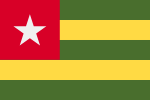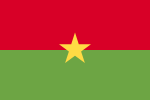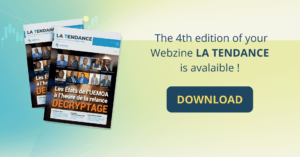ANOUAR HASSOUNE, Chairman & CEO OF WARA
“COMPARED TO OTHER COUNTRIES IN ASIA AND EUROPE, WE ARE THE LEAST INDEBTED COUNTRIES IN THE WORLD.”
CHAIRMAN AND CEO OF WEST AFRICA RATING AGENCY (WARA), A FINANCIAL RATING AGENCY BASED IN DAKAR, MR. ANOUAR HASSOUNE ANALYZES THE RATING OF ISSUERS’ SOLVENCY ON THE GOVERNMENT SECURITIES MARKET IN A CONTEXT OF HEALTH CRISIS. HE ALSO REVIEWS THE SOVEREIGN DEBT SITUATION OF WAEMU COUNTRIES.
Like other regions of the world, the WAEMU community zone is facing the coronavirus pandemic. How do you deal with the issue of sovereign ratings in this context of uncertainty?
What we are doing is measuring the ability and willingness of a debtor (a government or private sector entity) to repay its debt in the medium term, i.e. within a three-year timeframe. The question becomes: what happens when the entire global economic and financial system is affected symmetrically? This is what we call in economics a symmetric shock, which is completely different from an asymmetric shock. Therefore, when we are in a situation like the one we are experiencing (health crisis due to COVID-19), the first reaction of a rating agency is not to change its ratings. It is legitimate to ask how a rating agency, whose mandate is to measure (relative) credit risk through its ratings, reacts to COVID-19. Our answer may seem counterintuitive; in the end, there will be very little change in our ratings. The reason is inherent in the rating scale that underlies our methodologies, and the meaning of those ratings. WARA’s rating scale is, by construction, an ordinal scale, not a cardinal one. It captures the relative credit risks of CFA franc-denominated debt in the WAEMU sub-region. Ratings should be compared to each other, not interpreted in absolute terms.
Since the COVID-19 health crisis represents, at first analysis, a symmetrical shock, affecting all WAEMU countries and all economic entities that make up the sub-region, the relativity of credit risks remains unchanged in principle. There is no reason, in principle, why a previously good credit risk (i.e., a high rating) should deteriorate compared to a previously poor credit risk (i.e., a low rating) in the sub-region. On the other hand, it is more likely that the resilience of our sub-regional economies including component entities, compared to certain foreign economies (i.e., outside WAEMU), will be impacted due to the health crisis… which we will have to measure when an assessment of the human, social, economic and financial costs can be made. Such assessment would be risky to carry out now.
For example, when you have an entity whose business model is essentially dependent on tourism, such as a network of hotels, the reaction of a hotel chain to the COVID-19 will necessarily be much more intense than the reaction of an institution that does e-commerce. You will have in the same economic environment what we call “winners” and “losers”, in an essentially sectorial logic. It is in sectors you would find very negative correlation of these business models in relation to COVID-19 and conversely, positive reactions of the business models in relation to COVID-19. As early as May, we identified the potential of winners and losers. France will experience a 9% decline in growth, Guinea-Bissau a 1.5% decline. A pandemic is much less likely to affect a country when it is essentially specialized in primary sectors such as agriculture and mining. In terms of the sensitivity of their growth to the COVID-19 crisis, they will be less affected than economies that are much more globalized, urbanized and dependent on the service sector.
What could be the likely developments in sovereign ratings in the sub-region?
Since its inception in 2012, WARA has undertaken to monitor the credit quality of a “sovereign pool” of 18 countries, including the 8 Member States of the WAEMU zone, in addition to 10 other comparable African countries. Even though these sovereign pool ratings are not all published, they of course serve as an anchor for the rating of sub-sovereign entities, and as a qualitative and quantitative benchmark (through a regression model) of relative country risk. Three dimensions will most certainly govern the relative trajectory of WARA’s sovereign pool ratings: the flexibility with which national economies return to their pre-crisis growth trend; their ability to contain a possible fiscal hemorrhage; and the authorities’ trade-off between tackling the virus through public spending (i.e., through debt) or through off-budget societal control measures. It goes without saying that, while our methodology for sovereign analysis will not change, the weighting of the variables of cyclical flexibility and resilience, fiscal and balance sheet management, and governance should be increased, temporarily, relative to structural, institutional, monetary, and business climate variables. As such, we may see a greater polarization of sovereign pool ratings in the short and medium term, as we experience the effects of the various response strategies to the virus.
What do you think about the deficit of issuing States, which seems to widen?
There will be a widening double deficit: budget deficit on the one hand and current account deficit on the other. Budget deficit, in accordance with the WAEMU and ECOWAS convergence criteria, must be financed. We have no choice but to go into debt to finance it. And this is perceived as negative. The most constraining factor is the financing of the current account deficit; it does not have the same status as the budget deficit. The current account deficit requires financing in foreign currency. This reminds us of the Ivorian initiative with the recent issuance of a Eurobond. The same is true for Benin, which took advantage of the reprofiling of its public debt to increase the share of external financing in its overall financing. This is where the shoe pinches. Post-COVID-19 structural economic policies should focus their attention on accumulating foreign exchange reserves and becoming less dependent on foreign exchange financing of the current account. Accumulating foreign exchange requires two things: being more internationally competitive and internationally attractive. To be competitive, we need to sell better quality products or sell them cheaper. This is called price differentiation or quality differentiation. In this case, we have to industrialize our processes. Let me come back to the budget deficit. The issue is not the debt stock. Compared to other countries in Asia and Europe, we are the least indebted countries in the world. France has a debt to GDP ratio of 110%, Germany 105%, the USA has exceeded 95% of its GDP. On average, in West Africa, we are at less than 50%. It is not the amount of debt that is the problem. We have a lot of leeway in terms of public debt. It is more the sustainability of our public debt service in relation to our long-term growth trajectories that needs to be questioned or, in other words, our strategies for using public debt for sound future growth.
Should we be concerned about the sovereign debt sustainability of Member States in this context of COVID-19?
Public debt in quantity is not a concern. But the fact remains that there are some problems with public debt. The first is its management. Public debt management must be much more transparent and, above all, it must be managed with a view to productive investment and not simply to compensate for cyclical deficits. Public debt in Africa only has value when it is oriented towards investment. If borrowing is only to finance budget deficits caused by current expenditure, then such debt has lost its economic value: it is a constraint. On the other hand, when it is directed to support national structural economic development programs, there is no concern. However, if the money borrowed is intended to compensate for operational and current deficit, it is consumed in public spending. So it is the debt structural management that becomes an issue. The other concern is debt service. Some countries in the sub-region have neglected dynamic management and have ended up facing what is known as the “debt wall”, i.e., annual payments that are too high for the annual budget to support, requiring a reprofiling or even a restructuring of the public debt.
Do the recent calls for debt relief for African States harm their credit standing?
Calls for debt relief for African countries do not change our opinion on their credit standing. We have enough reserves to pay debt service in foreign currency. Politically, this is a good opportunity to interact with foreign currency lenders and advocate for solidarity in a situation of symmetric shock. The London Club and the Paris Club finance our countries with their own currency. We are forced to use someone else’s currency. It is absolutely normal to interact with those who lend in their own currency. However, such calls are not always recommendable. They send signals of instability to the international markets. We draw attention to two things: the fact that our competitiveness is not yet robust enough to meet the challenges of globalization, and that our attractiveness is not yet sufficient in terms of our governance habits. We are perceived as having inferior public governance habits to our peers in the rest of the world.
In your opinion, how useful is it for our issuing States to be rated in local currency?
When we created WARA in 2012, we had reason to believe that there is an abundance of sub-regional savings in local currency in our countries, institutional and individual savings that would deserve to find asset classes that could generate returns in return for this savings collection effort. Our social and historical habit is that savings are directed towards land ownership. This is not enough, because in a patrimonial logic, land and real estate are only two asset classes among many others. The asset classes that are useful for our economy, in addition to real estate and land, are twofold: the bond asset class and the equity asset class. Access to the financial market is not a slap in the face to the banks, it is rather a complement for them. And so, financial rating accompanies this phenomenon of financial disintermediation of capital markets. We then talk about the financialization of the economy as it modernizes, which implies more transparency in financial information, which is what we are participating in.
Most of the time, government bonds and bills are oversubscribed. What explains such investor enthusiasm for government securities on the market?
Government bonds and bills are oversubscribed when there are sufficient savings available. The question we have to ask ourselves is how to make sure that the demand for financing and the supply of financing are on the same market. I think you need good quality information. Rating agencies, such as WARA, help to improve information and streamline communication on the financial market.
How is the WAEMU Government Securities Market fairing today?
Governments have no problem in accessing this market; institutional investors that we often meet thanks to UMOA-Titres respond favorably to the financing requests of the issuers (States). However, this positive response to Government Securities is accompanied by a certain number of requests. In general, investors ask for more transparency. They also want issuers to be rated by local credit rating agencies. And that the documents resulting from these evaluations be published and made available to them. They also ask for a dynamic, transparent and efficient management of public debt. They also want to have a chronology of issues in order to have a long-term predictability of the resources that are requested by the States. Finally, they are calling for various maturities for securities (short term, medium term, long term and very long term) to be managed in a coordinated manner at WAEMU level.
What is the outlook like for the Government Securities Market in 2021?
In 2021, deficits will stabilize; from 2022 onwards, we should, in all likelihood, see a recovery. The crisis is a short term shock on the lifecycle of a State. For WARA, the long term is 3 years. Our economies are capable of absorbing these symmetric short to medium term shocks. It is high time we improved our governance in order to be more competitive and attractive.












